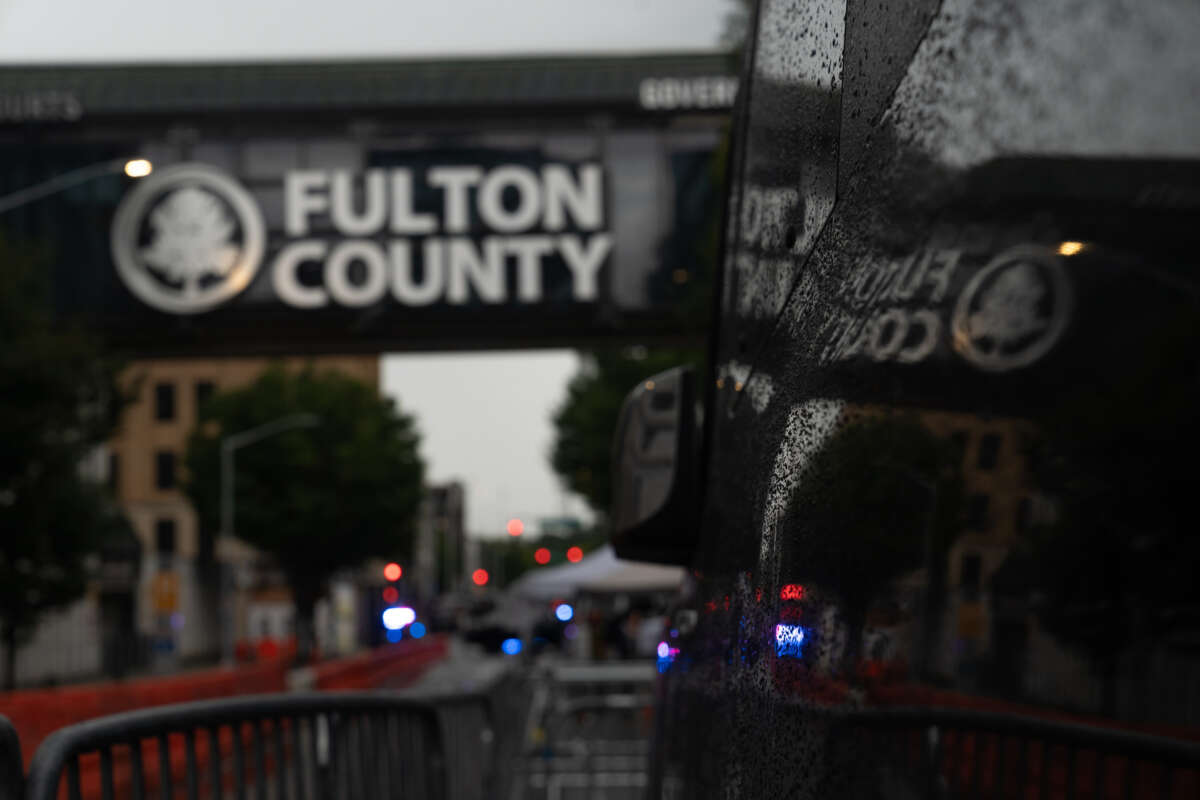Support justice-driven, accurate and transparent news — make a quick donation to Truthout today!
Several fierce supporters of former President Donald Trump have posted publicly, online, the supposed personal information of Fulton County, Georgia, grand jury members who recently voted to indict him and his 18 co-defendants over their efforts to overturn the 2020 presidential election results in the state.
Several news websites have reported on the postings but are refusing to say where on the internet they happened. Truthout is taking the same approach, out of an abundance of caution and protection for those who have been identified.
By state law, the names of individuals who participate in grand jury deliberations must be published at the conclusion of their work. Additional personal information is not required to be disclosed. However, Trump loyalists have sought information on these individuals, and have posted their supposed addresses, pictures and social media profiles on the web.
The potentially harmful actions of these Trump loyalists may extend to other residents of the county who weren’t even involved in the case. According to a report from CNN, much of the information that has been shared isn’t correct, belonging to people in the state who share the same names as those who took part in the grand jury but who aren’t actually involved in the matter in any way, shape or form.
Several of the Trump supporters sharing this information or otherwise commenting on it have also made baseless claims that grand jury members were involved in a conspiracy to indict the former president, arguing without evidence that they were operatives of the Democratic Party or otherwise hand selected by District Attorney Fani Willis in order to secure charges against Trump for political reasons. The politics and voting history of grand jury members were not part of the selection process, which occurred in open court.
Security experts expressed concern that the release of information on grand jury members — whether accurate or not — is dangerous, and could result in harassment or direct harm to those who have been named.
“Many of the platforms where these discussions are taking place have a long history of being linked to violent extremism, including a slate of mass shootings and politically-motivated acts of violence like the Capitol insurrection,” Ben Decker, CEO of the threat intelligence company, Memetica, said to CNN.
“It’s becoming all too commonplace to see everyday citizens performing necessary functions for our democracy being targeted with violent threats by Trump-supporting extremists,” Daniel J. Jones, founder of Advance Democracy and a former FBI investigator, said to NBC News. “The lack of political leadership on the right to denounce these threats — which serve to inspire real-world political violence — is shameful.”
Additional security measures have been put in place for members of Willis’s office, and Willis herself has already faced multiple racist threats from Trump supporters. The Fulton County Sheriff’s Department refused to discuss with the media what security precautions, if any, were put in place for members of the grand jury.
Trump and his co-defendants were officially indicted in Fulton County on Monday evening on state Racketeer Influenced and Corrupt Organizations (RICO) charges and other counts relating to efforts to change the outcome of the 2020 election. Trump himself faces 13 charges in total — in addition to the RICO charges, Trump has been indicted for soliciting a public officer to violate their oath of office, conspiring to impersonate a public officer, conspiring to commit forgery, and conspiring to file false documents.
As part of the indictment, Willis cited the infamous phone call between Trump and Georgia Secretary of State Brad Raffensperger in early January 2021, in which Trump demanded the state official “find” him 11,780 votes — the exact amount needed to overturn Biden’s win in the state. Within that conversation, Trump also appeared to threaten Raffensperger and his lawyer, telling them they could face legal repercussions for refusing to help him overturn the race.
The charges against Trump and his co-defendants detail “a web of conspiracies to undermine the rule of law and to subvert the electoral process in order to maintain a grip on power,” journalist Sasha Abramsky wrote for Truthout.
A terrifying moment. We appeal for your support.
In the last weeks, we have witnessed an authoritarian assault on communities in Minnesota and across the nation.
The need for truthful, grassroots reporting is urgent at this cataclysmic historical moment. Yet, Trump-aligned billionaires and other allies have taken over many legacy media outlets — the culmination of a decades-long campaign to place control of the narrative into the hands of the political right.
We refuse to let Trump’s blatant propaganda machine go unchecked. Untethered to corporate ownership or advertisers, Truthout remains fearless in our reporting and our determination to use journalism as a tool for justice.
But we need your help just to fund our basic expenses. Over 80 percent of Truthout’s funding comes from small individual donations from our community of readers, and over a third of our total budget is supported by recurring monthly donors.
Truthout’s fundraiser ended last night, and we fell just short of our goal. But your support still matters immensely. Whether you can make a small monthly donation or a larger one-time gift, Truthout only works with your help.
